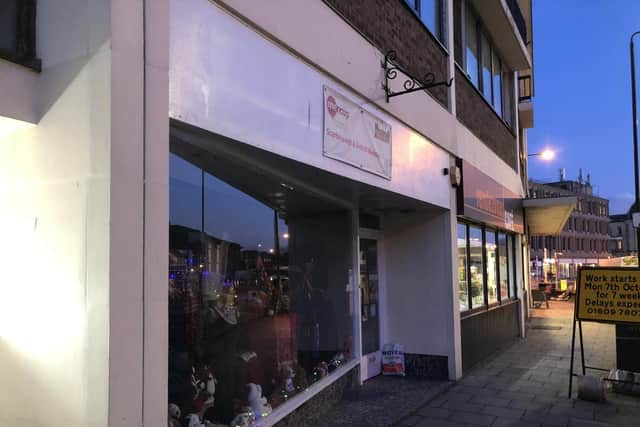Here's why police are opposing a new micropub in Scarborough town centre
and live on Freeview channel 276
Katrice Rowe has applied to the borough council to open the small bar in a former charity shop at 7 Northway, opposite the Stephen Joseph Theatre.
Her planning application states that the bar would be open from noon until midnight seven days a week.
Advertisement
Hide AdAdvertisement
Hide AdNorth Yorkshire Police has been consulted on the plan and while it has not objected it has suggested a number of conditions would need to be placed on a premises licence if or when one is applied for in the future to mitigate its impact on the area.


Although the bar could get planning permission to open, it would need a premises licence to serve alcohol.
The designing out crime report from North Yorkshire Police notes that in the previous 12 months there were 277 crimes and 235 incidents of anti-social behaviour within a 100-metre radius of the property.
It adds that alcohol-related violence and criminal damage in the area is “already placing a significant demand on police resources”.
Advertisement
Hide AdAdvertisement
Hide AdThe report, which has been sent to Scarborough Council, notes: “The application premises are located within the authority’s Cumulative Impact Zone (CIZ). This is an area that has been identified as having high levels of crime and disorder together with high concentrations of licensed premises and hot food takeaways.”
Although the CIZ is part of licensing policy and not planning police the police say it is still relevant to the application and says that the potential issues raised by the micropub should be dealt with if a licensing application is submitted.
Ms Rowe’s application states that the pub would sell craft beers, lagers, ciders and spirits with an emphasis on “small breweries and distilleries, where the principle is based on the real ale ethic, endorsed by a discerning clientele”.
Her application adds: ” Economically, the larger, Wetherspoon-type model, is the most successful form of licensed establishment and this has been disastrous for traditional local public houses, who cannot compete on sale or purchase prices.
“The social drinkers displaced by the loss of good public houses have also lost their identity as a local community.”
The plan remains out to consultation.